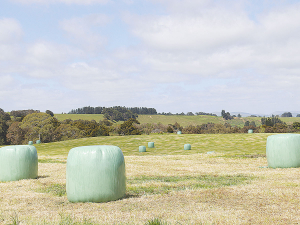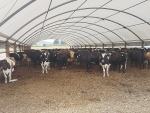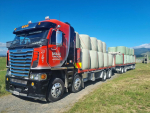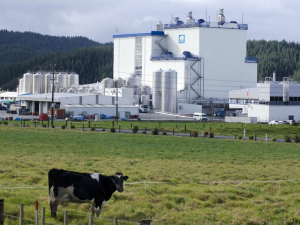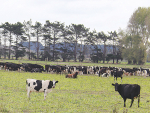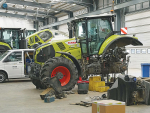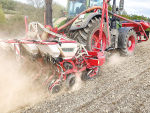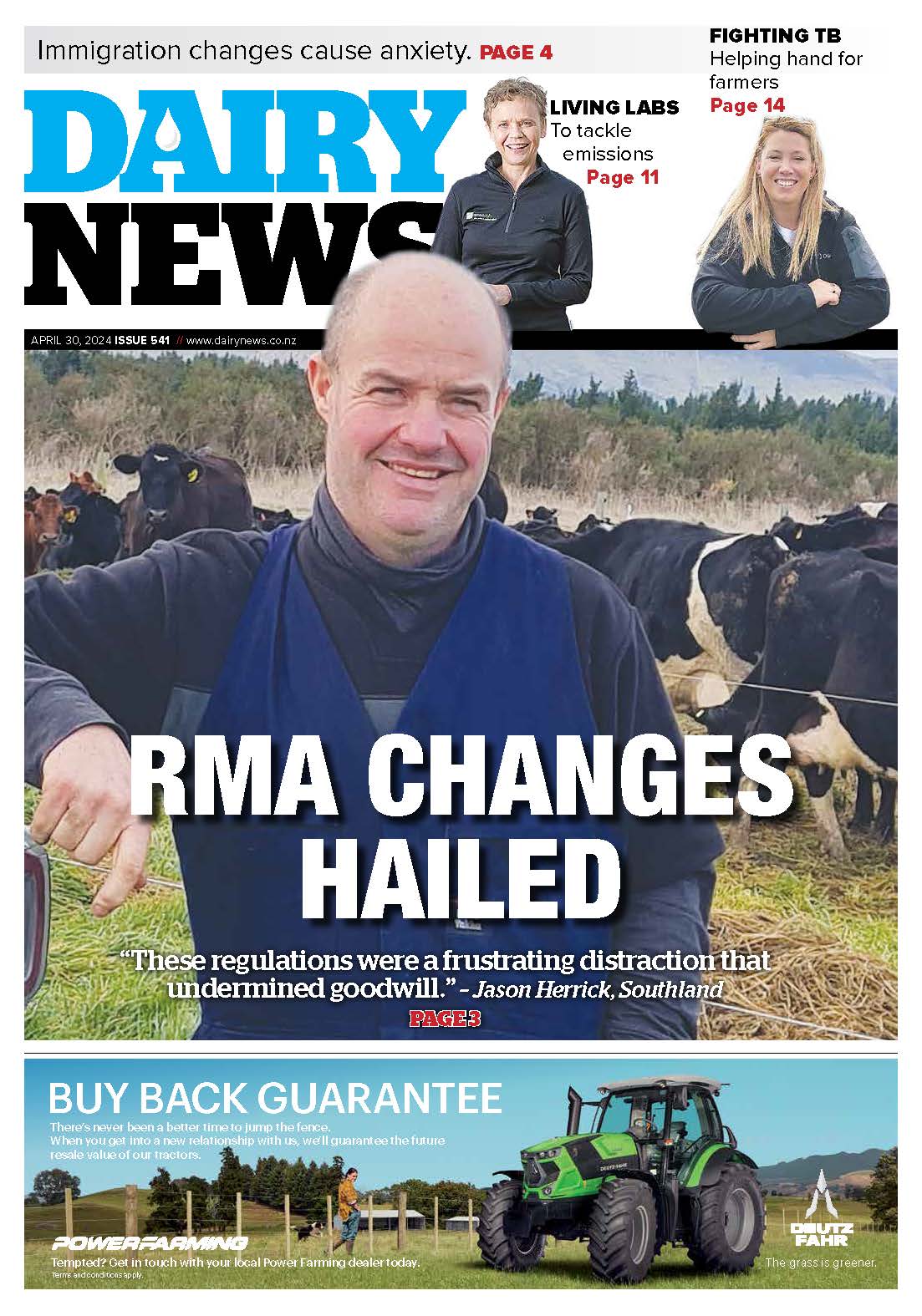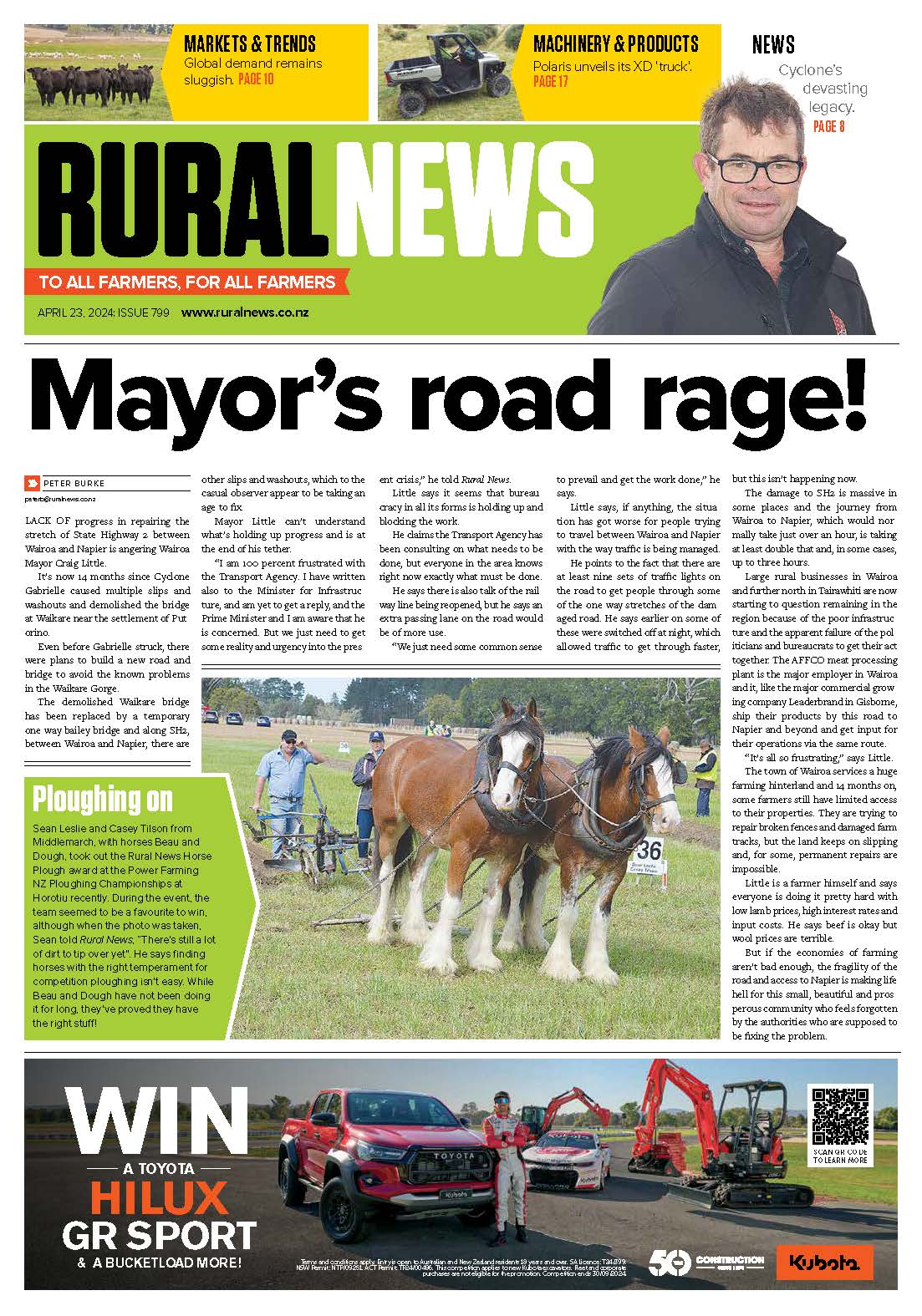Driving from home base in the Horowhenua through Hawke’s Bay and up the East Coast, it’s pretty evident that feed for cows is in short supply and that ground is still wet.
There are large puddles in many paddocks and there is little evidence of grass silage being made. On last week’s trip to Napier I saw only two farms where silage was being cut and, in both instances, the amount of grass that had been cut was pretty meagre compared to previous seasons when one would have seen a hive of activity, cutting and bailing grass silage.
The word from farm consultants is that silage production is significantly below what is normal for this time of the year and that this and the planting of crops is at least a month behind normal. To add to the problem, the view is the grass is ‘gutless’ and of poor quality because of the lack of sunshine and the continuous rain. One farmer told me that he couldn’t remember a week when it hadn’t rained.
For dairy farmers this is the ‘money time’ – when production is supposed to be at its peak – but it isn’t and the number being quoted is that milk production will be down by 4% on last season which itself was not a good season.
According to one rural professional in the lower North Island it’s been the hardest season that people can remember. He says fortunately there has been warm weather but everything else has gone against farmers, with low sunshine hours and well above average rainfall. This has impacted on utilisation and has meant farmers have had to use more supplement than normal.
For all the challenges, the consultant told me that farmers have done a remarkable job looking after their animals and their soil.
But again the wet weather and the lack of feed appears likely to affect cow condition and in particular mating, and there is a belief that many cows won’t get in calf the first time.
“It’s a tough gig at the moment and has gone beyond being the saying ‘this is just farming’ – this is far worse. For many farmers ‘the fridge is empty’ – meaning they have virtually run out of supplements,” says one consultant Dairy News spoke to.
The big problem now is that the soil is so saturated, in the lower North Island and all the way up to Gisborne, that even a minor overnight rain fall can cause flooding on farms and on commercial growing operations.
As little as five or ten millimetres of rain will fill pug marks in paddocks and damage crops. This is the case on coastal sand country from Manawatu through to Horowhenua. This land is supposed to be able to absorb water, but it is saturated. Bunkers on local golf courses have become duck ponds for the first time ever.
While all this is happening with the weather, farmers are facing the uncertainty and onslaught of new government regulations. The ‘pile-on’ effect, with more and more stresses being placed on farmers, has seen many now talking of quitting and selling their land to those wanting to plant trees.
From the observations of Dairy News, the mood of many dairy and other farmers is one of fear, despondency and anger at the latest response from government on how agricultural gas emissions should be dealt with. It would seem that the prospect of a good payout for dairy farmers is little compensation for the myriad of other challenges they are facing.





